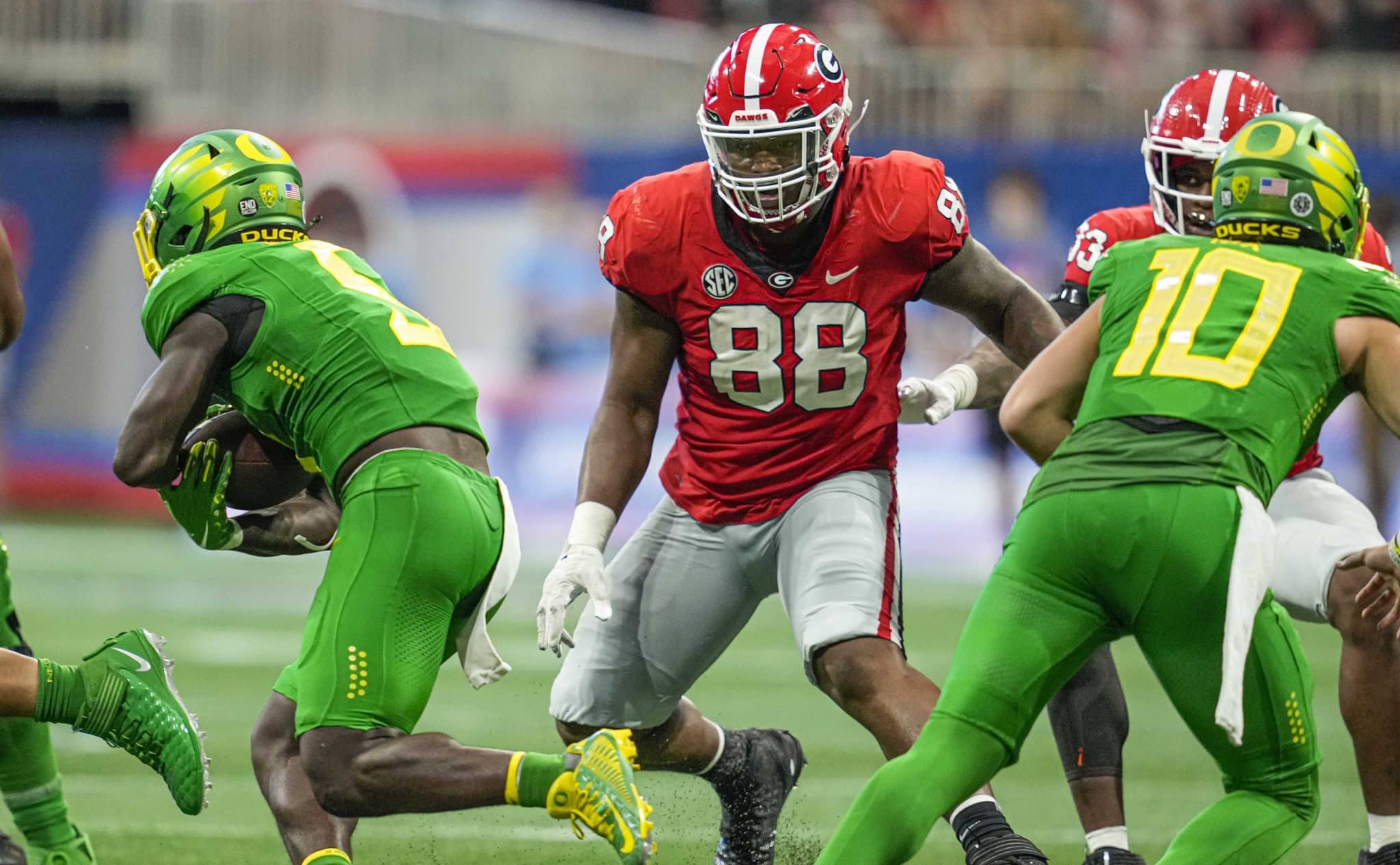
Hayes: Jalen Carter won’t win the Heisman, but he’s the reason Georgia dominates
By Matt Hayes
Published:
The problem with the greatest individual award in all of sports is how we get there.
Because too many times, the guy walking away with the Heisman Trophy isn’t the best player in college football.
Bryce Young is the best player in college football, and if we’re intellectually honest about this thing, he’d become only the 2nd player to win multiple Heisman Trophies.
But if that doesn’t work and we’re still honest about the process — instead of voting for the quarterback with big numbers who plays on a team in the championship hunt — we’ll go to the next best player in college football.
Jalen Carter.
This, of course, will never happen because Carter is a defensive tackle. He’s not a pretty quarterback, or a dynamic running back or a dangerous wide receiver.
He’s a glorified grunt, a game-changing defensive tackle, an unblockable and disruptive force on the greatest defense in college football over the past 2 seasons.
He is the best player on the field every time Georgia lines up. He was Saturday night in a rout of Mississippi State and was last week in a rout of Tennessee.
But he doesn’t have 40-something total touchdowns and 4,000 total yards, and isn’t the easy highlight to show and explain on the late-night television.
When Ohio State’s CJ Stroud throws a deep ball to Emeka Egbuka, that’s an easy sell. Look how perfect it all looks as the ball drops into Egbuka’s hands.
When Michigan’s Blake Corum rumbles for a touchdown, it’s an easy sell. Look at him break tackles and run away from the second level.
When Carter demolishes a double-team block and forces a quarterback off his mark, which leads to a poor throw or a game-changing interception, that’s a tough sell. That’s not glitzy or glamorous.
Tennessee scored 52 points on an elite Alabama defense. Tennessee is the highest-scoring offense in college football, and a week after losing to Georgia, scored 66 points on a very good Missouri defense.
Tennessee had 13 points against Georgia, and the sheer brutality of what the Georgia defense did can’t be easily explained. More specifically, of what Carter did in that game — and what he means to a defense that has dominated the sport in an era of quarterback-fueled, vertical passing offenses.
“Tennessee couldn’t block him,” an NFL scout said of Carter. “I don’t think people realize how devastating that is. You’re putting together a game plan, and everything you do has to be planned accordingly.”
It’s not so much sacks or tackles for loss, but the impact on the game. Or as Alabama coach Nick Saban likes to say, affecting the quarterback.
The narrative from the Tennessee game is quarterback Hendon Hooker “missed” 3 deep balls that he typically hits, and if he hits those throws, it’s a different game.
He missed those throws because Carter and the Georgia defense were affecting the game. He missed those throws because he couldn’t stand framed in the pocket, shoulders squared and feet set, and throw a perfect ball like he has so many times this season.
His feet were constantly moving, his release point was constantly changing because he had to move, or hop, or throw on one foot — because he was constantly avoiding chaos in the pocket.
“(Hooker) didn’t miss those throws as much as he was forced into doing things he doesn’t typically do,” the scout said. “Every quarterback reacts differently to pressure. The difference with (Carter) is it’s pressure in your face, it’s not off the edge. You don’t see that enough in college football to know how to deal with it. That’s NFL-level pressure.”
Carter played 46 snaps against Tennessee, had 4 tackles, 1 sack and 2 tackles for loss. The scout told me Carter affected the play — made a stop, redirected the play, forced a mistake — only nearly 85 percent of the snaps.
Against Mississippi State, Carter had 7 tackles, 1 sack, 1.5 tackles for loss — but was unblockable from the first play of the game.
“Watch his hands, they’re so quick and strong,” the scout texted me mid-game Saturday night. “He’s explosive, just a massive guy to try and control at the point of attack for anyone in college football. We talk about mismatches all the time with the skill guys. This guy is the definition of a mismatch. If he’s not the best player in college football, I don’t know who is.”
The problem is, the Heisman Trophy is all about random and shortsighted metrics that have somehow become full-blown rules. The misguided nonsense has somehow become the fabric of a flawed process, one that every Heisman race adheres to.
Since 2000, nearly every Heisman race has been defined by one of these parameters: best quarterback in college football, quarterback on the best team, quarterback on a blue-blood team, best skill player on the best team.
Since 2000, 18 quarterbacks have won the award, 3 running backs and a wide receiver have won the award.
Of those 18 quarterbacks, only Lamar Jackson (2016) and Robert Griffin III (2011) didn’t play for team that was in the championship (BCS or Playoff) hunt in November.
Here’s Georgia, in the thick of the Playoff hunt again. The best team in college football again.
The best player on the best team? Jalen Carter.
Matt Hayes is a national college football writer for Saturday Down South. You can hear him daily from 12-3 p.m. on 1010XL in Jacksonville. Follow on Twitter @MattHayesCFB







